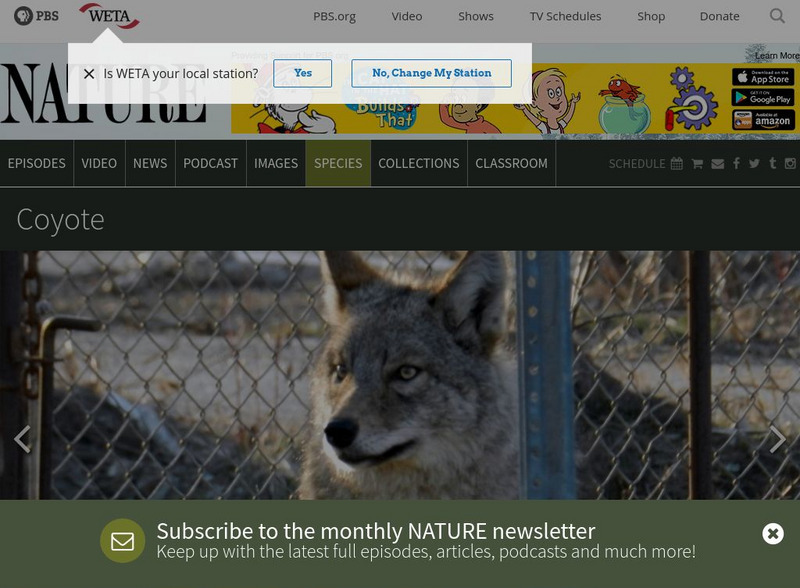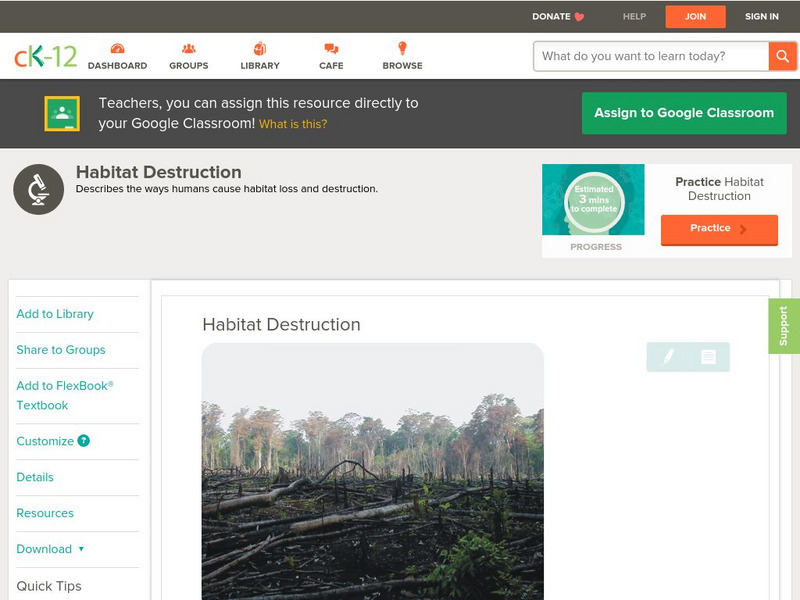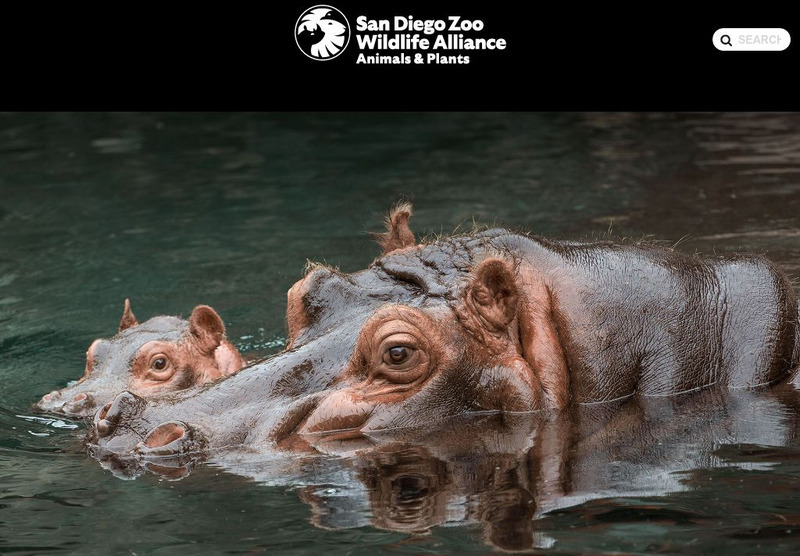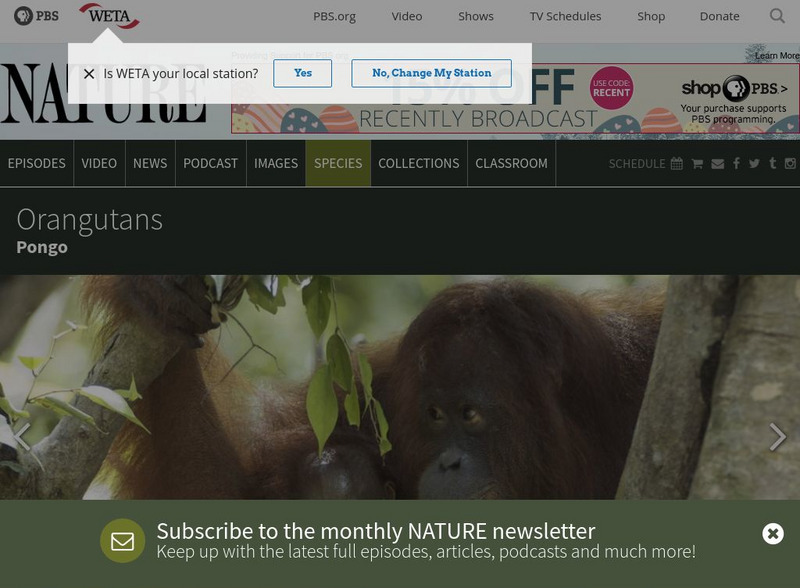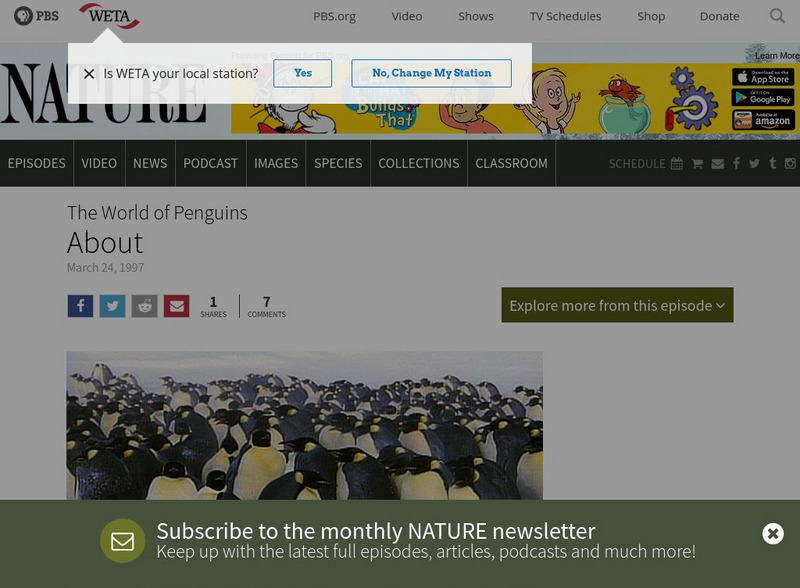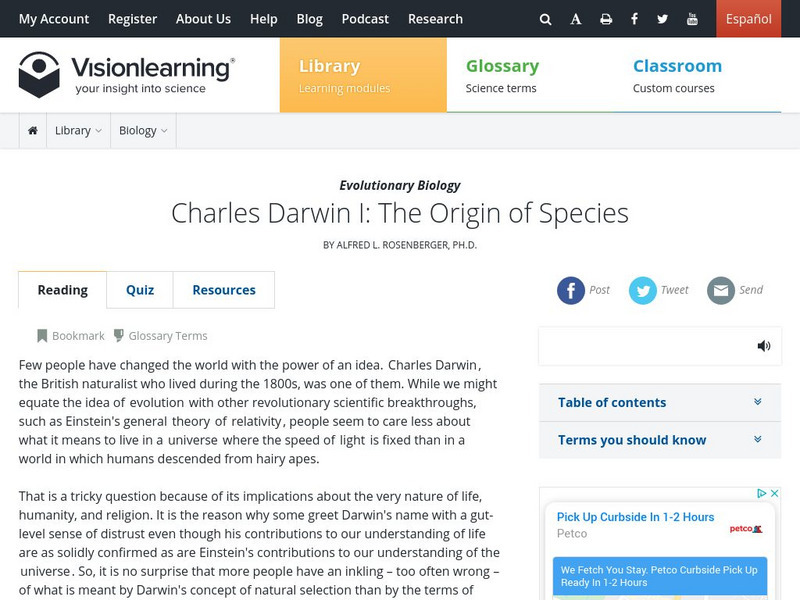PBS
Pbs Nature: Coyote
What do you know about coyotes? Learn more about how adaptable this animal is to new surroundings when you check out this informative resource. Explore this website to find more facts and information ranging from what these animals eat...
CK-12 Foundation
Ck 12: Life Science: Habitat Destruction
[Free Registration/Login may be required to access all resource tools.] From a human point of view, a habitat is where you live, go to school, and go to have fun. Your habitat can be altered, and you can easily adapt. Most people live in...
PBS
Pbs Learning Media: Wild in the City
Learn about how wild parakeets have adapted to city life in this WILD TV video segment.
Smithsonian Institution
National Museum of Natural History: Hall of Mammals: Pronghorn
Brief overview of the pronghorn and accompanying photos demonstrate the physical adaptations that allow this animal to be one of the fastest mammals.
Smithsonian Institution
National Museum of Natural History: Hall of Mammals: Crabeater Seal
Brief overview of the crabeater seal and accompanying photos demonstrate the physical adaptations that allow this animal to eat and survive.
Smithsonian Institution
National Museum of Natural History: Hall of Mammals: Vampire Bat
Brief overview of the vampire bat and an accompanying photo demonstrate the physical adaptations that allow this animal to eat to survive.
Science Education Resource Center at Carleton College
Serc: How Do Worms Behave?
Learners investigate how worms will interact and adapt with their environment.
Smithsonian Institution
Smithsonian National Zoo: Meet Our Animals
This site from the National Zoological Park provides extensive information about many types of animals. Just click on the category you need. Includes pictures and live web cams.
PBS
Pbs Teachers:flying Casanovas: Bowerbird Basics
Examine characteristics of bowerbirds and their bowers. Compare and contrast various styles of bowers created by bowerbirds
San Diego Zoo Global
San Diego Zoo: Hippotpotamus
This resource presents detailed information about the hippotpotamus, including several photos and an audio clip.
BBC
Bbc: Nature Wildfacts: Hippopotamus
This resource provides detailed information about hippopotamuses.
PBS
Nature: Cheetah
What are some of the cheetah's distinctive characteristics? Come and check out this resource featuring fun facts and information about the cheetah.
Enchanted Learning
Enchanted Learning: Polar Bears
Learn more about the polar bear when you visit this informative site that features a diagram of the polar bear and information on its diet, habitat, anatomy, reproduction and so on.
PBS
Pbs Nature: Orangutans
Come and check out this awesome resource on orangutans. Students who need help narrowing their informational search will benefit from this clear and concise resource.
PBS
Pbs: Nature: The World of Penguins
What do you know about the world of penguins? This PBS site features information about these flightless birds. Come and check out this extraordinary resource.
Alabama Learning Exchange
Alex: Surviving in the World!
After learning about the survival traits of the chameleon, young scholars will work in groups to research the survival traits of other animals on the Internet and will create a slide show using the collected information to share with the...
Vision Learning
Visionlearning: Biology: Charles Darwin I: The Origin of Species
Instructional module focusing on the early work of Charles Darwin. Discusses Darwin's key role in supporting and describing the theory of evolution as driven by natural selection. Site also includes an interactive practice quiz and links...
BBC
Bbc: Nature Wildfacts: Clouded Leopard
To learn more about this particular leopard, examine these photos and study the detailed fact sheet.
Chicago Zoological Society
Chicago Zoological Society: Zoo Explorer: North American River Otter
Familiarize yourself with the North American river otter by browsing this brief overview from the Brookfield Zoo. This animal guide includes quick facts and information on the appearance, habitat, social and eating habits, and other...
